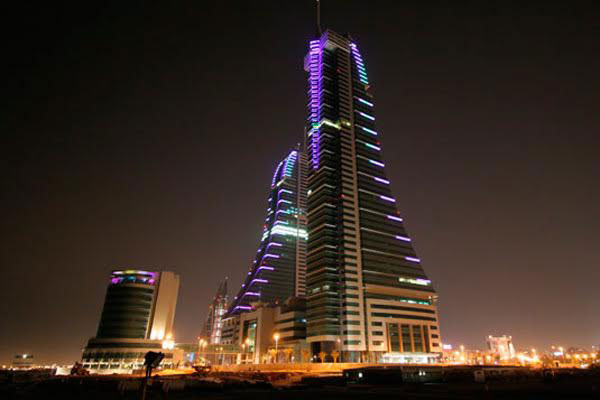
Govt regulations, human capital back Bahrain growth
DUBAI, April 27, 2016
Bahrain continues to benefit from favourable supply-side factors: supportive human capital, mature regulatory environment and cost-competitiveness versus regional financial centres, as well as connectivity to Saudi Arabia, a report said.
The main weakness on the macro side remains the large fiscal deficit and associated rapid debt build-up, added the report by Bank of America Merrill Lynch (BofAML) titled “GCC trip notes; Gradual labour recovery in Mexico” authored by the GEM Fixed Income Strategy & Economics Global team at Bank of America Merrill Lynch.
The government target is to reach a sustainable fiscal balance within 5-6 years (three two-year budget cycles) but this is likely challenging to achieve, according to BofAML.
Continued Saudi or GCC backstop support
Disbursement of GCC development funds is picking up with a marked increase in 2015, and further large disbursements (about $1 billion at least) expected for 2016. This is helping to support economic activity and lower on-budget capex spending. It is unclear whether the Qatari portion ($2.5 billion) of the committed 10 billion GCC development funds will be disbursed going forward, given political tensions.
“Our understanding is that Bahrain already received undisclosed GCC support. It is unclear what form this support has taken (financial support, deferral of payments for oil imports from Saudi Arabia, greater share of oil revenues from Abu Saafa offshore oil field, etc). We continue to expect Saudi support to Bahrain if need be as the costs of failure are greater than the costs of support,” BofAML said in the report.
Large deficit remains manageable for now but strains financing sources
At $30 per barrel (/bbl), Bahrain’s pro-forma fiscal deficit of $5.8 billion could still be filled through a mixture of external (up to a total of $2 billion this year) and domestic borrowing, proceeds from subsidy reforms, underspending and Saudi support if need be.
For instance, support could take place through the temporary transfer of a higher share (currently 150,000 bpd) of export revenues from the Abu Saafa offshore oil field, jointly owned with Saudi Arabia according to a 1958 treaty, and which may raise $1.5 billion (depending on the oil price).
“We see capacity to raise $1-1.5 billion in domestic debt, with the understanding that $1 billion in domestic debt needs to be rolled over this year,” the report said.
Material changes to administered energy prices announced
The recent move to materially cut energy subsidies was perhaps facilitated by the aggressive changes implemented in late December by Saudi Arabia. These moves were nevertheless studied for some time and had obtained political approval. In January, the government hiked gasoline prices by more than 50 per cent and cut diesel and kerosene subsidies.
Electricity and water subsidies have been overhauled as of March of this year, with prices to gradually increase over a four-year period. Electricity and water prices will eventually double for expatriates and large industrial companies. It would also apply to Bahrainis with more than one household, but will not affect Bahraini households or small and medium enterprises (SMEs). The government suggests the changes will lead to $1.1 billion in savings when fully implemented ($769mn on electricity and $386 million on water).
Further external debt issuance is likely
“After the $0.6 billion tap earlier in the year, we understand that the sovereign is likely to approach markets to raise a further $1.5 billion this year, likely in two tranches,” the report said.
“The first tranche could consist of conventional bonds, possibly to be issued by May. The second tranche could consist of Panda bonds (Chinese Renminbi-denominated bonds from a non-Chinese issuer sold in China) or private placements to minimize the impact on the broader market of additional supply. We do not expect the syndicated loan market to be tapped due to the need for further parliamentary approvals.”
USD peg under pressure
In terms of direct access to Fx reserves for fiscal purposes, the Ministry of Finance (MoF) appears to maintain some operational accounts at the Central Bank of Bahrain (CBB) but the MoF holds its main accounts in the banking sector, according to BofAML.
“The severe oil price drop appears to have caused some dollarization pick-up and capital outflows, according to anecdotal evidence, but we understand this has subsided. Should Saudi Arabia devalue, we would expect Bahrain to follow suit and devalue as well,” BofAML said. – TradeArabia News Service







